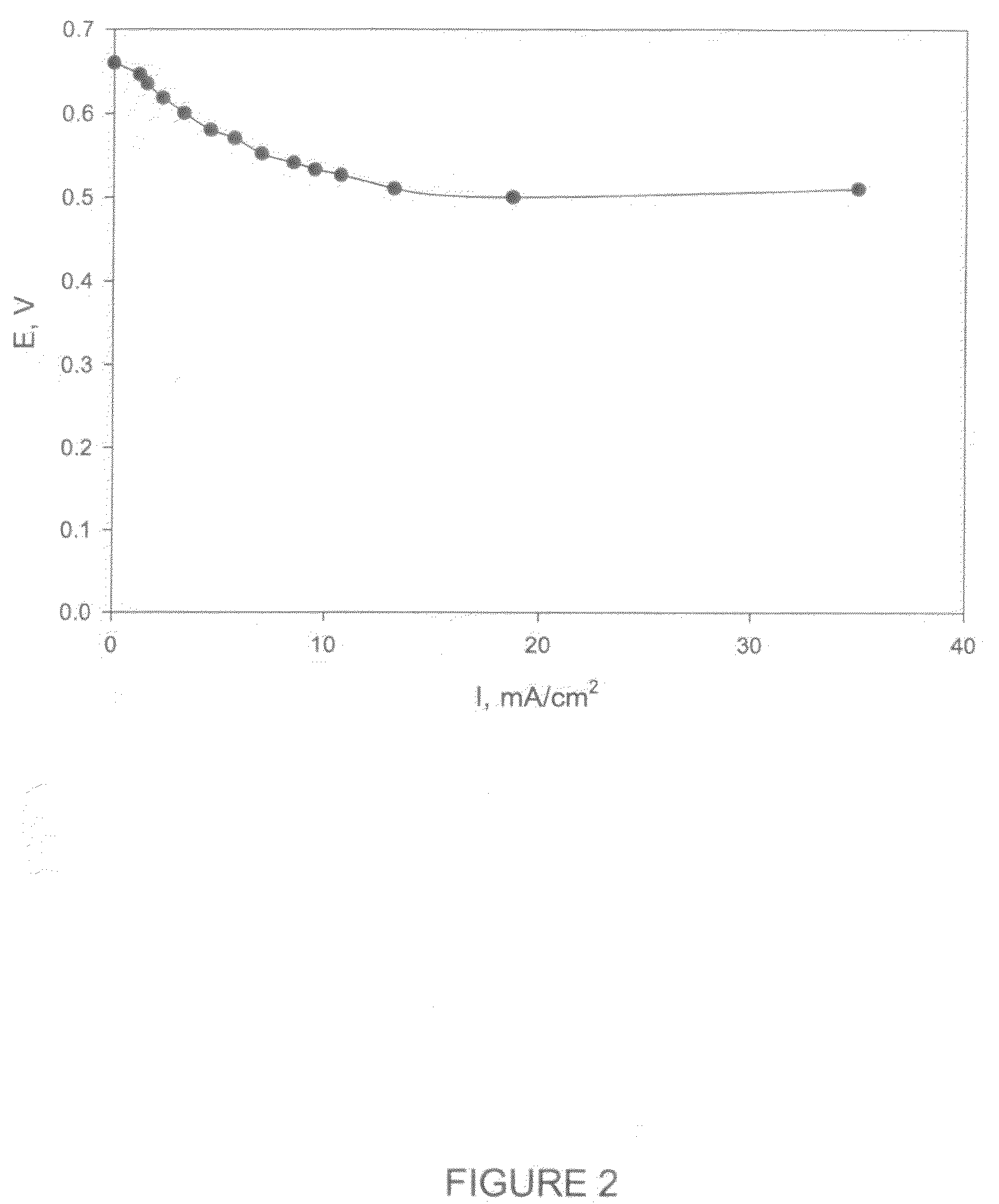Method for generating electricity
a technology of biofuel cells and oxidants, applied in the direction of indirect fuel cells, cell components, electrochemical generators, etc., can solve the problems of redox fuel cells, oxidant regeneration efficiency, and inability to achieve wide use, and achieve the effect of facilitating growth
- Summary
- Abstract
- Description
- Claims
- Application Information
AI Technical Summary
Benefits of technology
Problems solved by technology
Method used
Image
Examples
Embodiment Construction
[0053]A preferred embodiment of a bio-fuel cell constructed in accordance with the present invention is based on the microbial oxidation of ferrous ions for the regeneration of the oxidant (ferric ions) in the fuel cell where the ferric iron are regenerated by Acidithiobacillus ferrooxidans (A. ferrooxidans) according to the reaction (1) above. Referring to FIG. 1, a bio-fuel cell-bioreactor system shown generally at 10 includes a fuel cell section 12 including a cathodic compartment 14 and an anodic compartment 16 separated by a membrane 18, such as for example a Nafion proton-exchange membrane. The anode 20 may be platinized carbon felt, while the cathode 22 may be a layer of carbon felt or some other inert material having a porous or otherwise high surface area. While the membrane is preferably a proton exchange membrane (PEM) other types of membranes may be used for separating physically the liquid in the cathode chamber from the gas (for example, hydrogen fuel) in the anodic sp...
PUM
| Property | Measurement | Unit |
|---|---|---|
| redox potential | aaaaa | aaaaa |
| pore size | aaaaa | aaaaa |
| volume | aaaaa | aaaaa |
Abstract
Description
Claims
Application Information
 Login to View More
Login to View More - R&D
- Intellectual Property
- Life Sciences
- Materials
- Tech Scout
- Unparalleled Data Quality
- Higher Quality Content
- 60% Fewer Hallucinations
Browse by: Latest US Patents, China's latest patents, Technical Efficacy Thesaurus, Application Domain, Technology Topic, Popular Technical Reports.
© 2025 PatSnap. All rights reserved.Legal|Privacy policy|Modern Slavery Act Transparency Statement|Sitemap|About US| Contact US: help@patsnap.com



